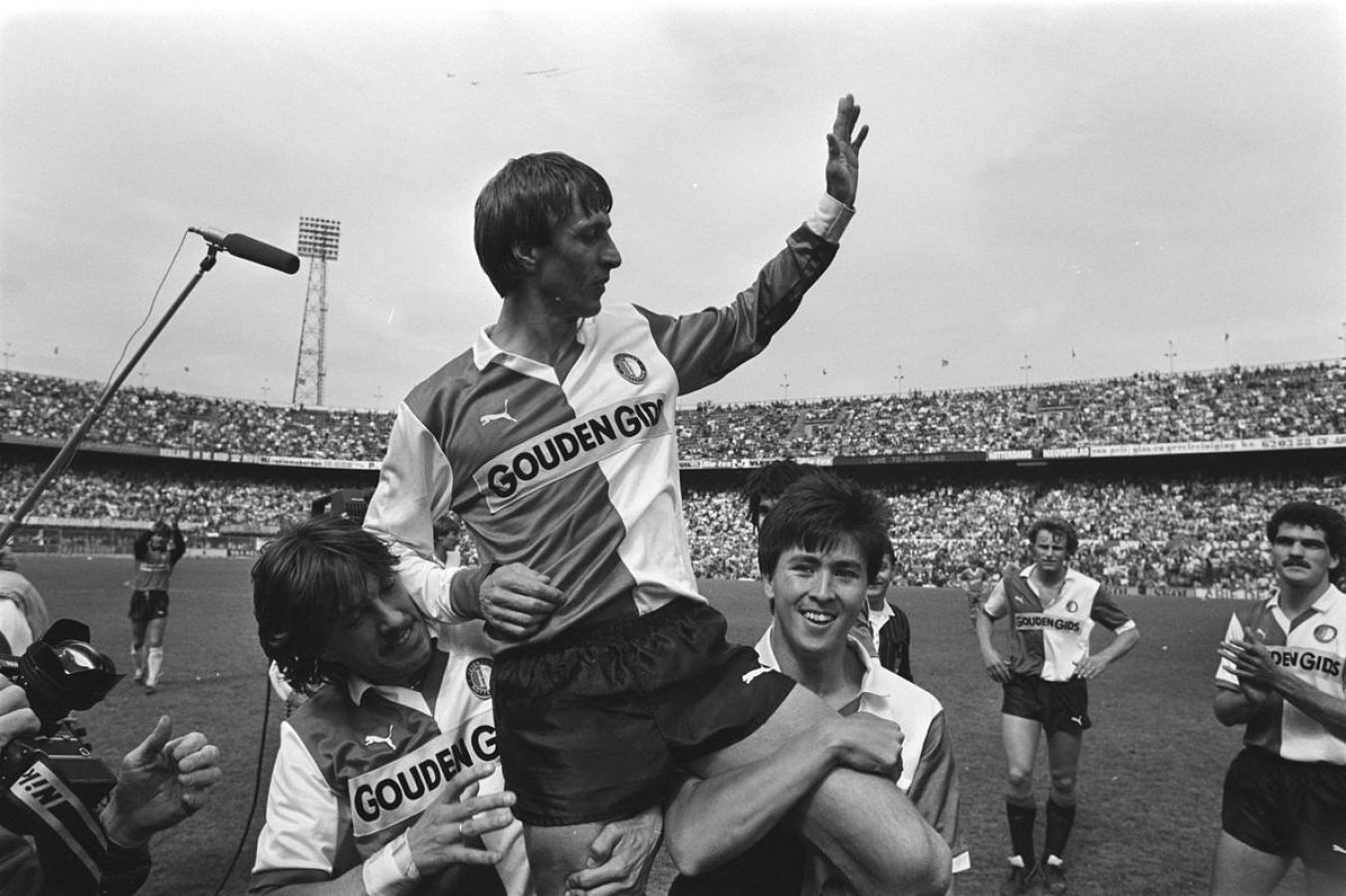On Thursday 24 March, the footballing world lost Johan Cruyff. ‘Europe’s best’ according to Gary Lineker, Cruyff was such a hero of the modern game that the football world ground to a halt on the 14th minute of multiple games this weekend as Ajax, Feyenoord, and the Dutch national team paid tribute to the man who changed football beyond recognition.
Usually the thing to do would be to wax lyrical about the achievements of the departed legend. With Cruyff, however, this feels disingenuous – a reduction of his supreme and complete talent to a few numbers and letters on a page rather than actually discussing what made the Dutchman such a special talent. Yes, he won nine Eredivisie and three European Cups and three Ballon D’Or, but those accolades and winner’s medals do not accurately convey the paradigm shift he instigated.
Cruyff played the game at his own speed. Much like Lionel Messi today, the Ajax and Holland teams were built around him, allowing him to burst forward, to get on the end of crosses, to perform bits of skill previously unseen. The phrase and tactics of ‘Total Football’ began with him and Holland and Ajax coach Rinus Michels. No-one who played against the Holland side of the 1974 World Cup could be accused of rolling over to the Oranje; it was undeniably the Dutch doing the bulldozing.
The style, comprising complete positional flexibility with total comfort – whether with or without the ball – twinned with the sensational skill of Cruyff, ensured he was utterly unstoppable at times. It is one of football’s greatest shames that Cruyff and his Dutch dynasty of the early 1970s never won the World Cup.
Cruyff’s influence on the pitch was a joy to behold. He possessed the ability to glide past half of the opposing team’s defence while barely breaking sweat. His aerial ability was up there with the best and his ability to find space and bring teammates into the game was unequalled until the emergence of Messi.
Perhaps Cruyff’s most enduring legacy will not be his time on the pitch, but his time off it. While the dawn of Total Football in the early 70s was astonishing, it was not until Cruyff turned to coaching that his stamp on football became indelible. After three years at Ajax in the mid-80s, Cruyff took charge of his second home, Barcelona, in 1988, and rapidly turned a club that had only won two La Ligas since 1960 into a footballing empire.
Cruyff transformed Barcelona with signings like Ronald Koeman, Michael Laudrup, Romario, and Hristo Stoichkov, as well as bringing through the first of the La Masia graduates including one of the greatest managers of all-time in Pep Guardiola, and now Director of Football at Manchester City, Txiki Bergiristain. Under Cruyff, playing the same type of football Michels had instilled into Cruyff at Ajax, Barcelona won four consecutive La Ligas, a feat not even matched by Guardiola.
The style of football that is now synonymous with Barcelona and the emphasis on technical ability above all else is all down to Cruyff. La Masia was also his brainchild. His intention to sell the idea of a copy of the Ajax Academy to then Barcelona president Josep Nunez paid dividends in both meanings of the phrase. The cathedral of football that is now the Nou Camp and Barcelona can all be traced back to the impact of Cruyff. As Guardiola once said: “Johan Cruyff painted the chapel, and Barcelona coaches since merely restore or improve it”.
Cruyff’s mission statement and footballing outlook are best summed up in his own words: “Playing football is very simple, but playing simple football is the hardest thing there is”. He was, and will forever be, the greatest European footballer and the greatest player never to win a World Cup.
Image courtesy of Nationaal Archief Fotocollectie Anefo

